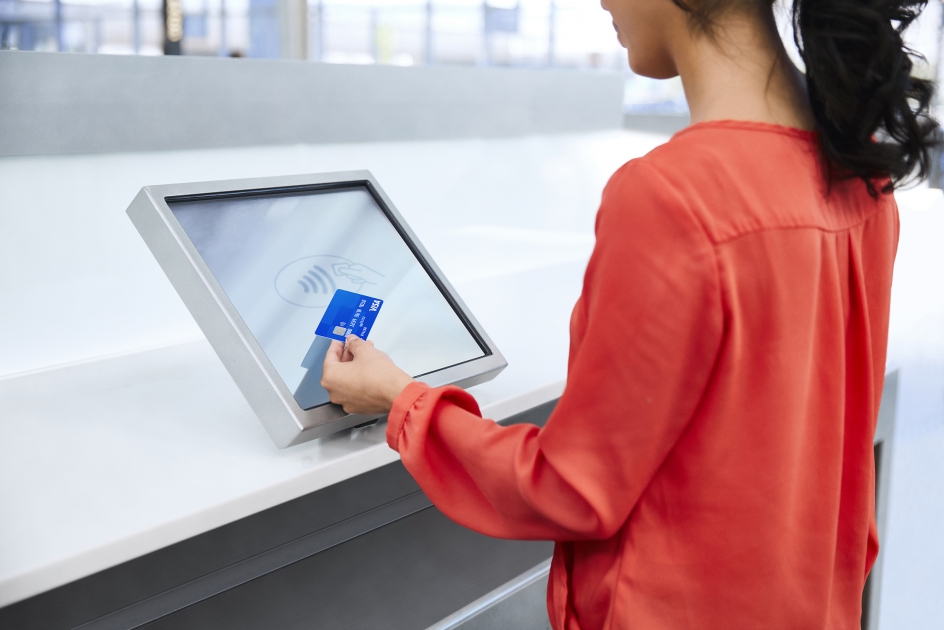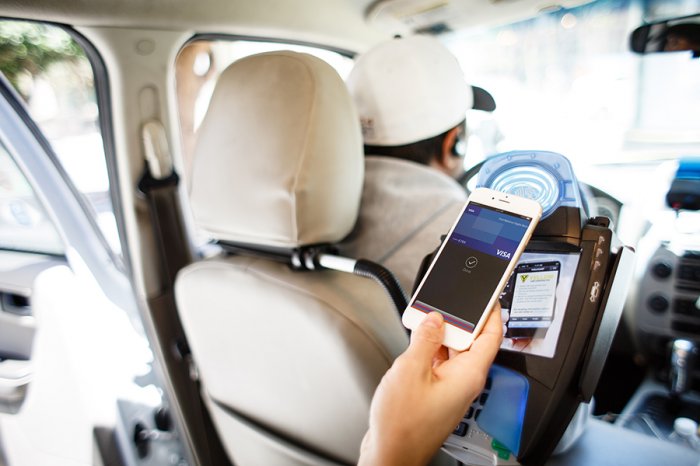
Visa Global Study Identifies Key Success Factors to Improve Daily Travel, Creating Smarter, More Efficient Cities
Visa (NYSE: V), in collaboration with Stanford University, launched one of the largest global studies examining the growing demand for public and private transportation, and the important role digital commerce plays in driving sustainable growth.
According to the UN, by 2050, 68% of the world’s population will live in urban centres – and the number of “megacities” with populations greater than 10 million people will rise from 43 today to 51 within that same period.
Building on Visa’s experience working with transit operators, automotive companies and technology start-ups, Visa commissioned a global study, “The Future of Transportation: Mobility in the Age of the Megacity”, to better understand the challenges commuters face today and in the future. The key findings were combined with a view of existing and near horizon innovations provided by experts at Stanford University, to better understand the technology gaps in addressing their painpoints.
Payments lie at the heart of every form of travel, and will continue to become more integral as more cities move to contactless public transportation, digital payments for parking and rental services such as bikes or scooters.
Herman Donner, PhD and Postdoctoral Researcher from Stanford University co-authored the report and summarised: “When looking across the technology landscape, there already exist many products that could easily address people’s daily frustrations with travel. However, none of these solutions should be developed in isolation. A major challenge therefore lies in first identifying relevant technologies that provide suitable products for the market then managing implementation in conjunction with a broad set of stakeholder including mobility providers, technology companies, infrastructure owners and public transport agencies. From our research, we think that many of these small, incremental changes have the potential to make a significant difference in people’s daily travel, whether it’s to help find parking, get the best price to refuel their car or plan their journey on public transportation.”
The study reflects the feedback of 19,000 consumers in 19 countries and identified significant challenges faced by growing urban centres, including:
Commenting on the UAE statistics, Shahebaz Khan, Visa’s General Manager for the UAE, said: “The study shows that half of the youth population (Gen Z) use personal mode of transport for commuting, however, we are optimistic that this number will become significantly less in the future. With the UAE moving forward on the implementation of several smart mobility-led initiatives, the use of public transport will become more frequent than now. Another important insight that emerged from the survey is quality of service being a key priority for residents, with 68% stating ease and speed of payment is important when using public transport. Visa is working closely with government and public transport authorities in the UAE to streamline the payment experience for commuters, and to build sustainable and convenient transportation solutions that will improve the lives of the people who use it. At Visa, we believe that the future success of our cities is intertwined with – and reliant on – the future of transportation and mobility.”
KEY TRENDS – GLOBAL (19,000 respondents) AND UAE (1008 respondents)
Commute times:
57% of respondents in the UAE have seen their commuting time increase (compared to 46% globally)
51% in the UAE expect to spend the same or less time commuting over the next five years
Car use:
The personal car remains the top mode of transport for both commuting (61% for UAE and 60% globally) and personal travel (59% for UAE and 61% globally)
53% of Generation Z (aged 18-25) respondents based in the UAE use a car to get to work, school or university, compared to 42% globally, while 54% of Gen Z in the UAE use a car for personal travel
The most disliked aspect of driving is attempting to find a parking space, as cited by 57% of respondents based in the UAE (vs 64% globally)
Followed by the risk of getting a fine if you park longer than anticipated (50% in UAE and 44% globally) and paying more for parking time than needed (42% in UAE and globally)
Public transport use:
Over half of people (61%) surveyed in the UAE use a personal car as a way to get to work, school or university, compared to 44 % globally
That number lowers to 59 percent – where people in the UAE get out of the car and use of public transportation for personal travel such as entertainment, whereas globally that number sees an increase of 54% compared to 44% globally.
Commuters choose transportation type based on three factors: convenience, reliability and overcrowding. Importance of each factor differs depending on age:
GenX in the UAE (46-55) - Convenience (72%), Reliability (80%) and Overcrowding (72%)
Millennial Age group 2 in the UAE : 36-45 - Convenience (72%), Reliability (75%) and Overcrowding (67%)
Millennial Age group 1 in the UAE : 26-35 – Convenience (73%), Reliability (72%) and Overcrowding (67%)
GenZ (18-25) in the UAE - Convenience (59%), Reliability (62%) and Overcrowding (61%)
69% of the total surveyed think quality of customer service is important
Payments:
Complexity in payment is often at the root of many common complaints
68% of the total surveyed in the UAE think ease and speed of payment is important
If it was easier to pay for public transport, average use in the UAE would increase by 33%, vs 27% globally
42% in the UAE said the need for different tickets for different modes of travel is an issue, vs 47% globally
40% in the UAE said not knowing how much to pay is a problem (vs 44% globally)
32% in the UAE cited services being “cash-only” as an annoyance (vs 41% globally)
According to those surveyed in the UAE, these challenges make them less likely to use public transport and more likely to drive their own cars
For car users in the UAE, 47% would like to see innovations that would advise on the cheapest fuel available, vs 47% globally
44% of respondents in the UAE would like an app that recognizes the location where they are trying to refuel and pays through the app, vs 35% globally
VISA TOP FIVE RECOMMENDATIONS
Invest in connectivity. City governments need to invest in an “always on” data infrastructure, which is fundamental to the technology solutions that consumers demand. It supports real-time data exchanges that can inform people about their journey as well as provide insight for cities to ensure that services meet shifting demand.
Create a seamless payment experience to support commuter journeys with multiple “legs”. City governments and urban planners need to collaborate with think tanks, automotive and technology firms, and payments providers such as Visa. As a single journey will increasingly involve more than one mode transport (e.g., car+underground+bike) – it becomes imperative to create a simple, streamlined payment experience for the commuter, ranging from contactless transit to in-app payments or platform-based solutions.
Integrate personal authentication into the payment experience. As companies and municipalities increasingly incorporate digital payments, they also need to integrate instant authentication. The role of Digital ID in the ecosystem is critical to address the changes in the way people use transportation, ensuring that both payment and personal authentication is easy and seamless.
Design commerce systems with all members of society in mind. When designing the commerce ecosystem, all members of the transportation ecosystem need to challenge their thinking to include seniors and the un- or under-banked, ensuring no one is left behind.
Develop strategic partnerships to drive insights. Cities should partner with corporations that can broader insight, aiding in planning. Artificial Intelligence in combination with Big Data can be used to analyse data about consumption, movement and changing trends to anticipate needs in real time as well as provide cities with insight that can help with future planning.



























